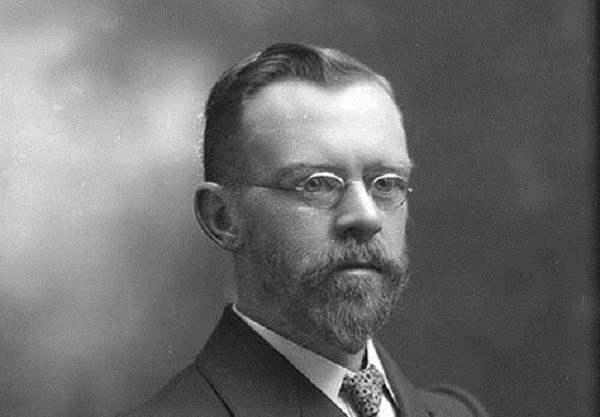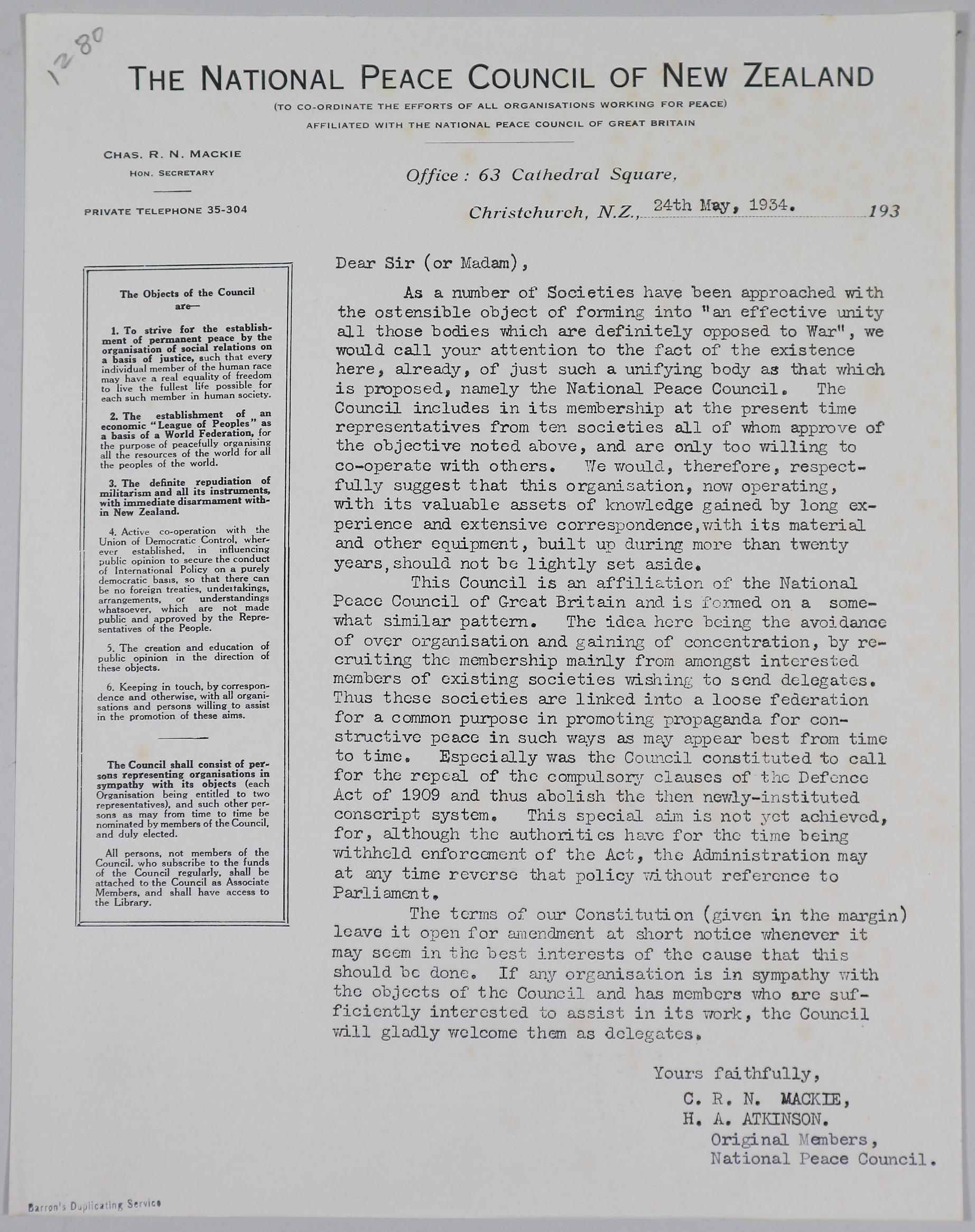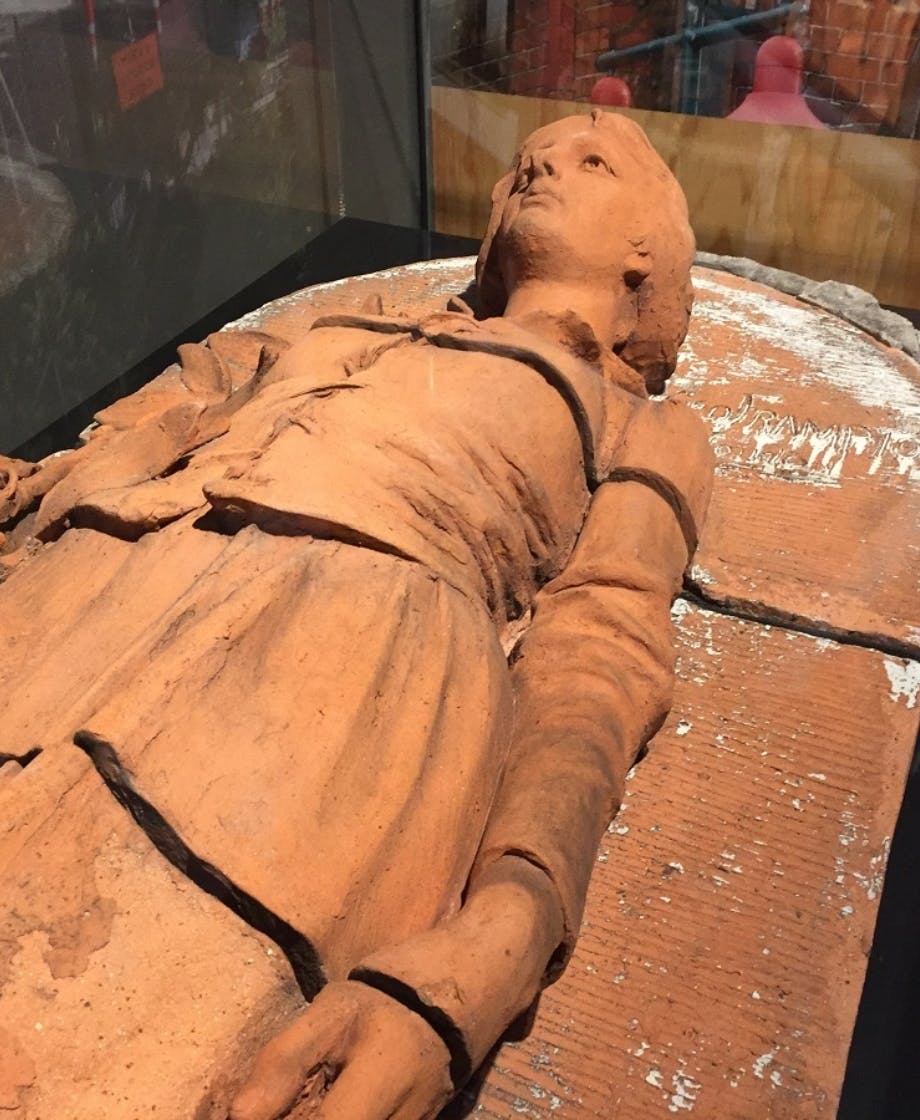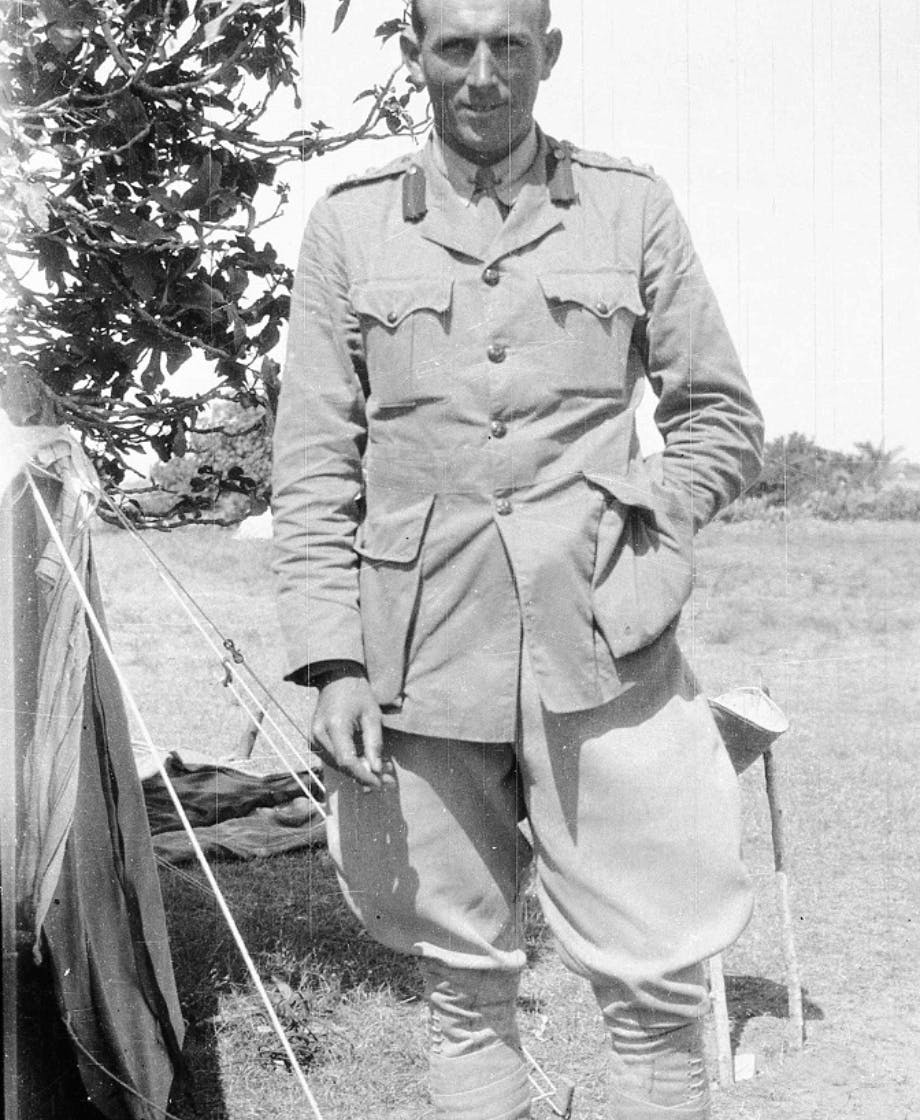When the New Zealand Government offered to gift a Dreadnought battleship to Britain in 1909, a leading Christchurch Baptist layman, Charles Mackie, objected.
Christ’s teachings on peace were clear, he argued in a letter to the New Zealand Baptist. Arbitration should be adopted for settling international disputes and Christians should be sending messages of peace and goodwill to fellow Christians throughout the world.
Going on to recommend that Christians should form Peace Unions and raise their voices for peace, Charles Mackie proceeded to do exactly that for the remainder of his life.

At first glance Mackie's background seems an unlikely one for a peace activist. Charles Robert Norris Mackie, was born in Avonside, Christchurch, in 1869 but probably spent most of his childhood at the sheep station Lavington. The station was on the south bank of the Rakaia River and was originally bought by his grandfather, the first vicar of the Avonside parish, and later divided between his father and uncle.
In 1884 when Charles Mackie was about 15 his father sold his share in the station and returned to England, where he died the following year. Mackie stayed on in England until after his mother’s death in Devonshire in 1900. He seems to have first become interested in peace during these years, later reporting that he was among those who had fought "strenuously for a peaceful settlement", at the time of the South African war.
When he returned to New Zealand the proceeds of his family’s land ownership appear to have supported him for the rest of his life, as once settled in Christchurch he devoted his life to numerous good causes. He married a widow, Ethel Manttan, born Nuttall, in 1914 but the couple had no children.
It seems likely that Mackie was attracted to the Baptist Church by the ministry of the Reverend Joseph Doke, who had spoken out against New Zealand’s involvement in the South African War. By 1902 Charles Mackie was playing an active role in the Oxford Terrace Baptist Church and over the next few years he held positions of responsibility in the church at local, regional and national levels. For 3 years he was the Missionary-Organiser for the New Zealand Baptist Union, a role he discharged with "skill and thoroughness". A year long trip to India, the United States and the United Kingdom from October 1909 left a deep impression. There was a "deep response given to any reference to peace," he said of the three large conferences he had attended while he was away.

The spark that prompted the formation of the National Peace Council was the involvement of the Christchurch Ministers’ Association in the recruitment of boys for compulsory military training, introduced in 1911. The Baptist Lay Preachers’ Association protested, calling upon Christians to "passively resist" the Government "or any other body whose laws and requirements are in opposition to the principles of the Christian faith."
It was soon after this, in June 1911, that the National Peace and Anti-Militarist League was formed, with Louis Christie as Secretary and Charles Mackie as Treasurer. In 1912 this organisation split into two separate groups: the National Peace Council of New Zealand and the Christchurch Anti-Militarist League. While the Anti-Militarist League remained a local membership organisation, the Peace Council was a council of delegates from other organisations and had an international vision for world peace. Mackie became the hard-working Secretary and key correspondent for the National Peace Council which kept closely in touch with peace groups in New Zealand and other parts of the world.
With 30 boxes of correspondence and another 16 boxes of pamphlets and publications, the Charles Mackie Papers are a large collection. But when you consider that the collection covers the work of the National Peace Council from its inception in 1911 until Mackie’s death in 1943, 30 boxes of correspondence seems quite modest.
The Charles Mackie Papers have been a wonderful resource for the Voices Against War research and education project, and several items from the collection can be seen on the ‘Voices Against War’ website. Click here to visit it.





